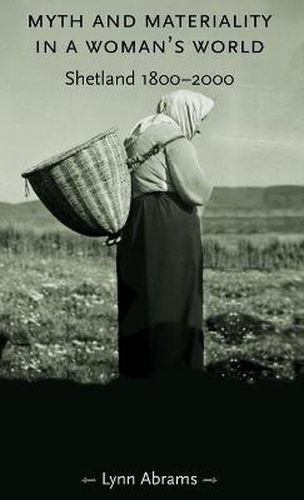Readings Newsletter
Become a Readings Member to make your shopping experience even easier.
Sign in or sign up for free!
You’re not far away from qualifying for FREE standard shipping within Australia
You’ve qualified for FREE standard shipping within Australia
The cart is loading…






Shetland has a history unique in Europe, for over the past two centuries it was a place where women dominated the family, economy, and the cultural imagination. Women ran households and crofts without men. They maintained families and communities because men were absent. And they constructed in their minds an identity of themselves as ‘liberated’ long before organised feminism was invented. And yet, Shetland is a place which was made by the most masculine of societies - those of the Picts, Scots and above all the Vikings - and its contemporary identity still draws on the heroic exploits and sagas of medieval Norsemen. This book examines how against this tradition Shetland became a female place, and offers answers as to how, in this most isolated island community, the inhabitants transgressed and reversed their traditional gender roles. Reconstructing this ‘woman’s world’ from fragments of cultural experience captured in written and oral sources, this book will appeal to scholars in the fields of social and cultural history, social anthropology, gender and women’s studies.
$9.00 standard shipping within Australia
FREE standard shipping within Australia for orders over $100.00
Express & International shipping calculated at checkout
Shetland has a history unique in Europe, for over the past two centuries it was a place where women dominated the family, economy, and the cultural imagination. Women ran households and crofts without men. They maintained families and communities because men were absent. And they constructed in their minds an identity of themselves as ‘liberated’ long before organised feminism was invented. And yet, Shetland is a place which was made by the most masculine of societies - those of the Picts, Scots and above all the Vikings - and its contemporary identity still draws on the heroic exploits and sagas of medieval Norsemen. This book examines how against this tradition Shetland became a female place, and offers answers as to how, in this most isolated island community, the inhabitants transgressed and reversed their traditional gender roles. Reconstructing this ‘woman’s world’ from fragments of cultural experience captured in written and oral sources, this book will appeal to scholars in the fields of social and cultural history, social anthropology, gender and women’s studies.